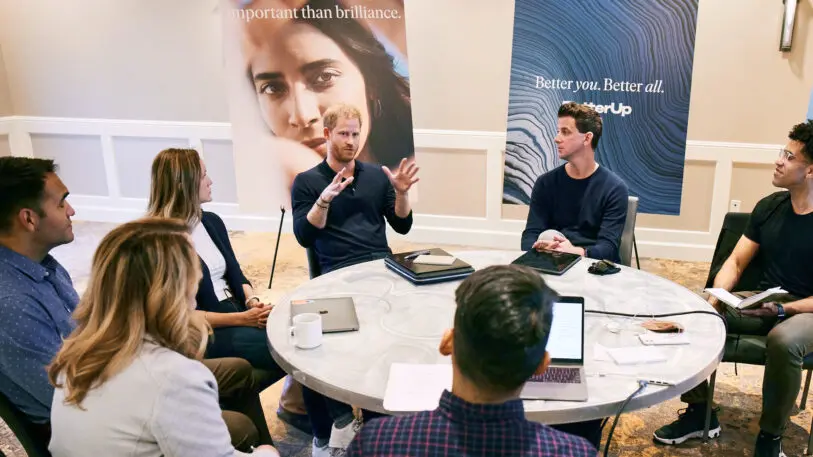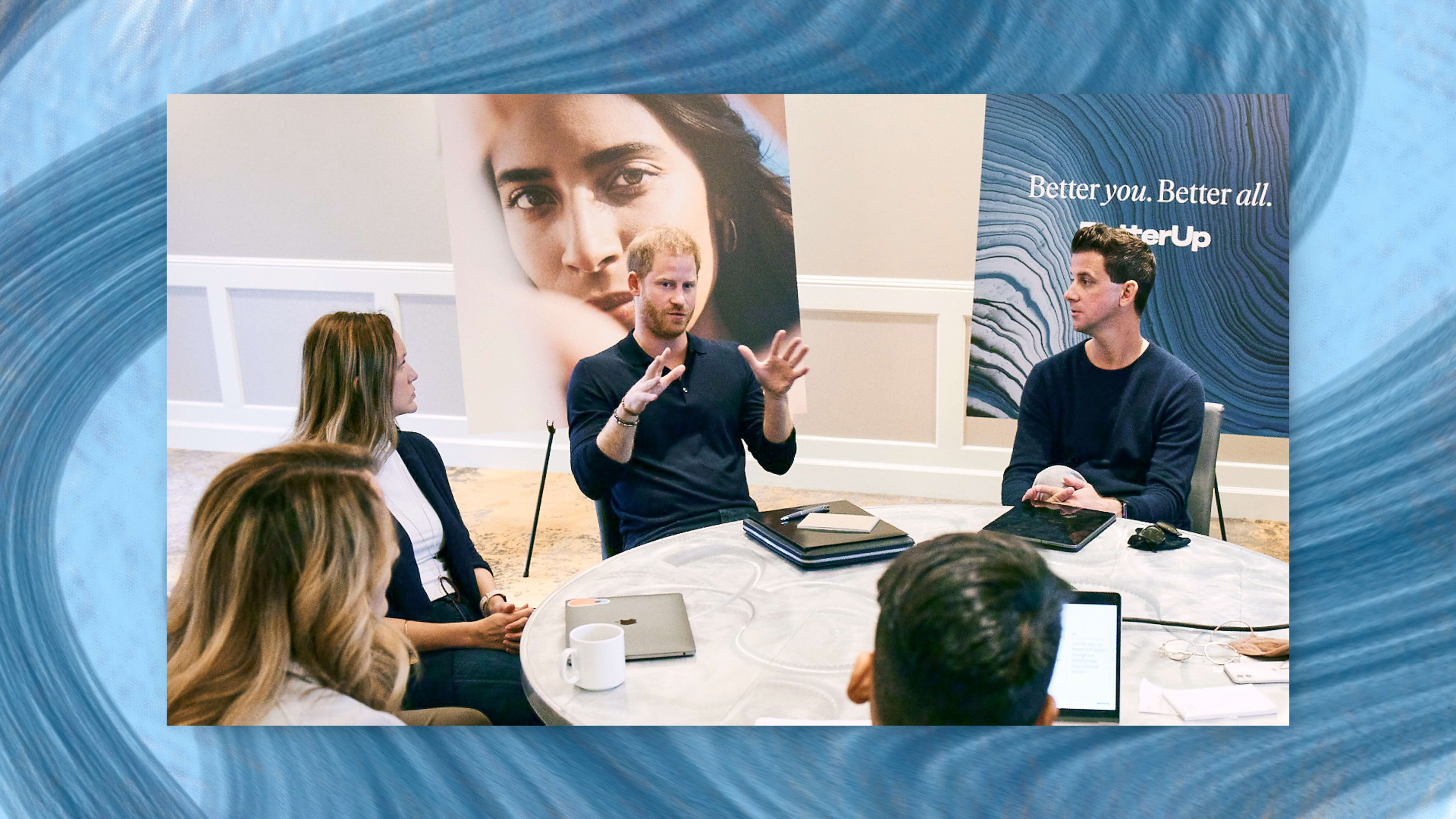Last March, Prince Harry, no longer a working royal, found a new job at a tech startup. The Duke of Sussex joined the eight-year-old San Francisco-based company BetterUp, which provides coaching and mental health services to businesses and individuals and is currently valued at $4.7 billion (the company raised $300 million in an October series E round). His role—as chief impact officer—spans product strategy, philanthropy, and public advocacy related to mental health. The Duke of Sussex is also advising the company on how to deploy capital raised through its commitment to Pledge 1%. “Part of his role is using his voice, experience, and background for advocacy and leadership around mental health,” BetterUp cofounder and CEO Alexi Robichaux says. Here, the Duke of Sussex—who is also an “impact partner” at sustainable investing fintech firm Ethic with the Duchess of Sussex—answers our questions about what he’s learned this year and what he hopes to accomplish with BetterUp.
You became BetterUp’s Chief Impact Officer in March. What have you been focused on so far?
When I first started with BetterUp, there were [some] key areas I was focused on: driving advocacy and awareness for mental fitness, guiding BetterUp’s social mission and impact, influencing the vision of BetterUp’s platform, community, and member experience, [and] expanding BetterUp’s global community of thought leadership, coaches, customers, and members through outreach and strategic planning. The goals and mission of my work have not changed, but on the day-to-day, at BetterUp we’ve been able to be louder about the mission, reach more people, and generally share with more of the world why doing the work associated with mental fitness is so important, and how helping others reach their peak performance positively impacts the whole world.
Have there been any aspects of the job that have surprised you?
I wouldn’t say this was a surprise, because of how passionately Alexi and Eddie spoke to me of their impact-driven roots at BetterUp, but it has been an extreme pleasure to see that social impact is not just a silo to the business—it’s interwoven into all of the work we do at BetterUp, and stems directly from the founders themselves. Product development and innovation is deeply intertwined with the positive social change we can make in the world and the ability to be able to help human transformation at scale.
COVID has accelerated a lot of trends in the workplace— like increased burnout and job resignations. How have you adapted your strategy to address these things?
That’s such a great question, because it brings us back to the thesis of BetterUp, and the work Alexi and Eddie and the team have been doing for the past 8+ years before I arrived, [and] also my personal belief and work in the mental fitness space. While on the surface it looks like these last couple of years brought all these issues to the foreground, the reality is these struggles and issues have been brewing for quite some time. We’re just at the beginning of the mental health awakening. This work has never been more important because people are finally paying attention, and a big component of this mission is building awareness and continuing to pioneer the conversation.
I’ve actually discovered recently, courtesy of a chat with [BetterUp science board member] Adam Grant, that a lot of the job resignations you mention aren’t all bad. In fact, it is a sign that with self-awareness comes the need for change. Many people around the world have been stuck in jobs that didn’t bring them joy, and now they’re putting their mental health and happiness first. This is something to be celebrated.

How are you working to measure the impact of your initiatives?
There will be more on the impact front of course, and I’m committed to ensuring the measurable and long-lasting impact. There must be potential to partner across all aspects of our Pledge 1% commitment. The initiative or organization must reach a diverse audience in an equitable manner. [And] the long-term community outcomes of the partnership should be measurable.
What are some of the organizations you are looking to work with?
Our commitment to Pledge 1% is just one of many initiatives we’re taking as an organization to generate positive social change. In the spirit of creating real and lasting impact, BetterUp will continue to focus on proactively building mental fitness into various communities in the areas of education and employability training, to name [two]. We know the impact of our mission on a global scale. We saw it, for example, in our partnership with the Queen’s Commonwealth Trust earlier this year, when young leaders across the Commonwealth gained tools for resilience and mental fitness that will be with them for life, and will help them to accelerate their impact on the world, by making their ideas a reality.
What are some of the projects you’ll be focused on over the next few months?
We’ll be working more with service members, veterans and their families. I can’t share the specifics just yet, but we’ll be working with a collection of government and nonprofit groups, offering resources to service personnel who are struggling [by] addressing them [issues] at the root cause. The work includes building support systems they need to build the mental fitness practices and psychological resources to face new challenges, build resilience, and unlock their own potential—both during active service and once they transition to civilian life.
At BetterUp, we envision a world where growth and transformation are possible for everyone, and everyone has access to the support and care they need to thrive—personally and professionally. Beyond the work we do here, I’d like to see other companies and organizations take action to bring the tools of peak performance for their whole teams. Just as peak physical health can reduce the severity of illness and help us quickly recover from injury, strong mental fitness is a preventative measure that can help us avoid more serious problems and even recover from past traumas. Being attuned with your mind, and having a support structure around you, are critical to finding your own version of peak performance, whether you’re a global leader or an employee working nine-to-five. The effects on the individual and the people around them are profound.
Recognize your brand’s excellence by applying to this year’s Brands That Matter Awards before the early-rate deadline, May 3.
